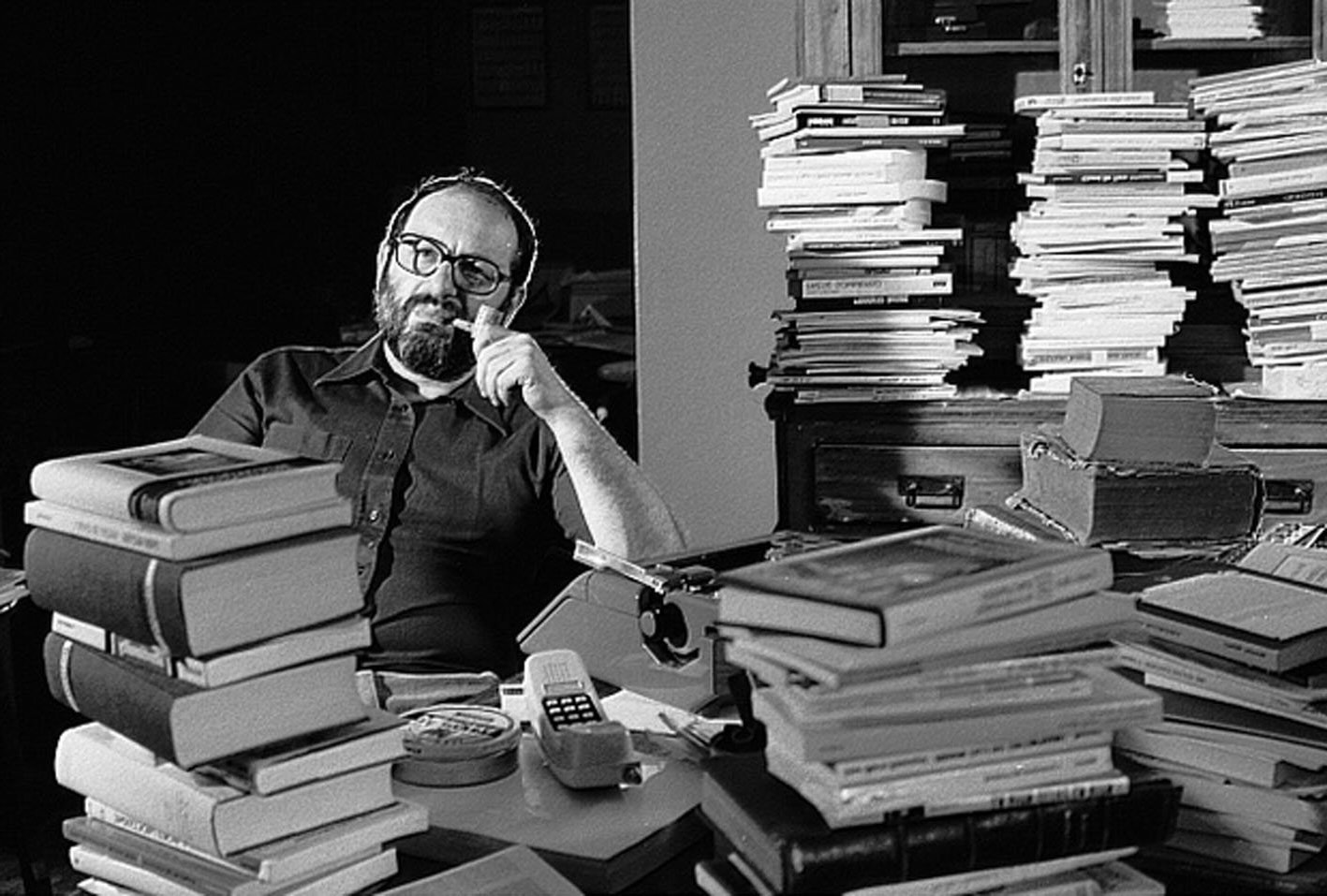
Who was Umberto Eco? Umberto Eco was an Italian novelist, literary critic, philosopher, and semiotician. Born on January 5, 1932, in Alessandria, Italy, he gained international fame with his novel "The Name of the Rose," a historical mystery combining semiotics, biblical analysis, medieval studies, and literary theory. Eco's works often explore complex themes, blending fiction with deep philosophical insights. Besides writing novels, he authored numerous essays on semiotics, linguistics, and medieval aesthetics. Eco's academic career included teaching at the University of Bologna, where he influenced many students with his innovative ideas. His contributions to literature and philosophy have left a lasting impact, making him a revered figure in both fields.
Early Life and Education
Umberto Eco, an Italian novelist, literary critic, philosopher, and semiotician, led a fascinating life filled with intellectual pursuits and achievements. Let's explore some intriguing facts about his early years and education.
- Born on January 5, 1932, in Alessandria, Italy, Eco grew up during a tumultuous period marked by World War II.
- His father, Giulio, was an accountant, while his mother, Giovanna, was a homemaker.
- Eco's family name is supposedly an acronym of the Latin phrase "ex caelis oblatus," meaning "a gift from the heavens."
- He initially studied law at the University of Turin but later switched to medieval philosophy and literature.
- Eco completed his thesis on Thomas Aquinas, a medieval philosopher and theologian, in 1954.
Career and Contributions
Eco's career spanned various fields, from academia to literature. His contributions have left a lasting impact on multiple disciplines.
- He began his career as a cultural editor for the Italian national television network RAI.
- Eco became a professor of semiotics at the University of Bologna, one of the oldest universities in the world.
- He authored over 20 non-fiction books, covering topics like semiotics, aesthetics, and medieval studies.
- His first novel, "The Name of the Rose," published in 1980, became an international bestseller.
- "The Name of the Rose" was later adapted into a film starring Sean Connery and Christian Slater in 1986.
Literary Achievements
Eco's novels are known for their intricate plots, historical settings, and deep philosophical themes. Here are some notable achievements in his literary career.
- "Foucault's Pendulum," published in 1988, is often considered a thinking person's "Da Vinci Code."
- Eco's works have been translated into more than 40 languages, making him a global literary figure.
- He received the prestigious Strega Prize in 1981 for "The Name of the Rose."
- Eco's novel "The Island of the Day Before," published in 1994, explores themes of time and memory.
- "Baudolino," released in 2000, is set during the Fourth Crusade and blends historical facts with fiction.
Philosophy and Semiotics
Eco's work in philosophy and semiotics has influenced scholars and students worldwide. His theories continue to be studied and debated.
- He founded the International Center for Semiotic and Cognitive Studies at the University of San Marino.
- Eco's book "A Theory of Semiotics," published in 1976, is considered a seminal work in the field.
- He argued that all cultural phenomena could be studied as communication.
- Eco's concept of the "open work" suggests that texts are open to multiple interpretations.
- He believed that readers play an active role in creating meaning from texts.
Personal Life and Interests
Beyond his professional achievements, Eco had a rich personal life filled with diverse interests and hobbies.
- Eco married Renate Ramge, a German art teacher, in 1962. They had two children, Stefano and Carlotta.
- He was an avid collector of antique books, amassing a personal library of over 30,000 volumes.
- Eco enjoyed playing the trumpet and was a fan of jazz music.
- He had a passion for comic books and even wrote essays on the subject.
- Eco was known for his wit and humor, often incorporating playful elements into his academic work.
Legacy and Influence
Eco's legacy continues to inspire and influence new generations of thinkers, writers, and scholars.
- He received honorary doctorates from numerous universities, including Yale, Columbia, and the Sorbonne.
- Eco's work has been the subject of countless academic conferences, articles, and books, ensuring his ideas live on.
Umberto Eco's life and work offer a rich tapestry of intellectual and creative achievements. His contributions to literature, philosophy, and semiotics have left an indelible mark on the world.
Umberto Eco's Lasting Legacy
Umberto Eco's influence stretches far beyond his novels. His works, like "The Name of the Rose," have captivated readers worldwide. Eco wasn't just a novelist; he was a philosopher, semiotician, and professor. His ability to weave complex ideas into engaging stories set him apart. Eco's essays and academic contributions continue to inspire scholars. His thoughts on media, culture, and communication remain relevant today. Eco's passion for knowledge and curiosity about the world made him a unique figure in literature and academia. His legacy lives on through his books, essays, and the countless minds he has influenced. Whether you're a fan of his fiction or his scholarly work, Eco's impact is undeniable. Dive into his writings, and you'll find a treasure trove of wisdom and insight. Eco's work reminds us of the power of words and the endless pursuit of understanding.
Was this page helpful?
Our commitment to delivering trustworthy and engaging content is at the heart of what we do. Each fact on our site is contributed by real users like you, bringing a wealth of diverse insights and information. To ensure the highest standards of accuracy and reliability, our dedicated editors meticulously review each submission. This process guarantees that the facts we share are not only fascinating but also credible. Trust in our commitment to quality and authenticity as you explore and learn with us.
